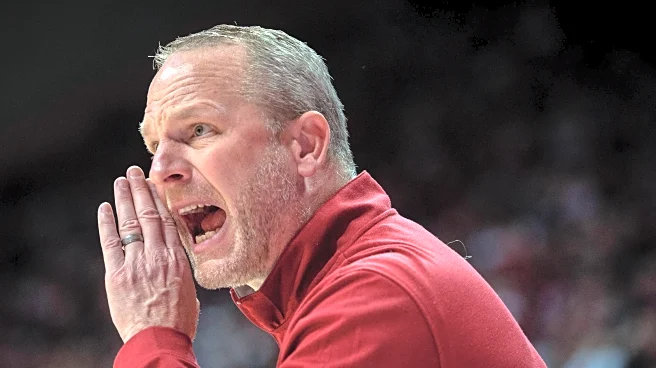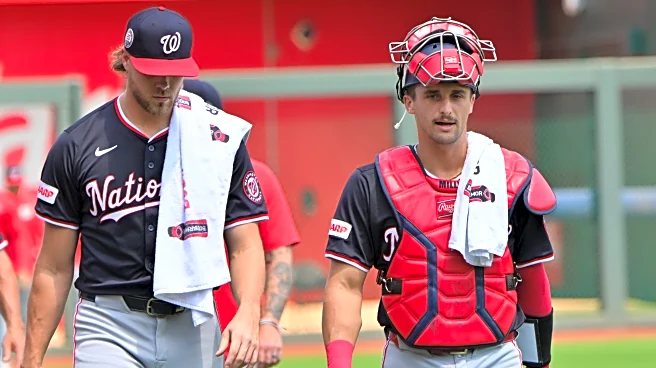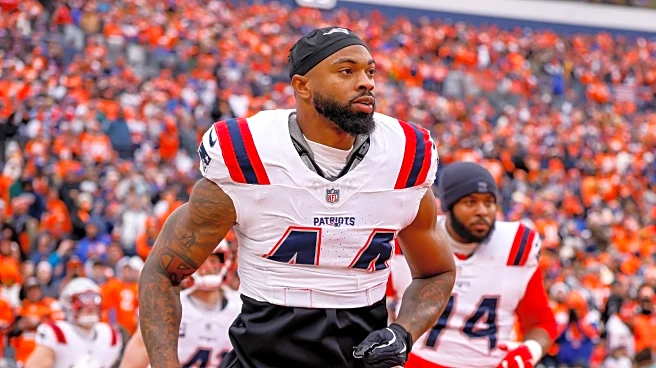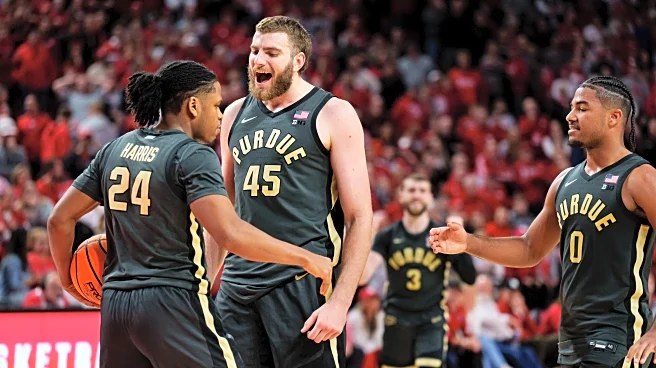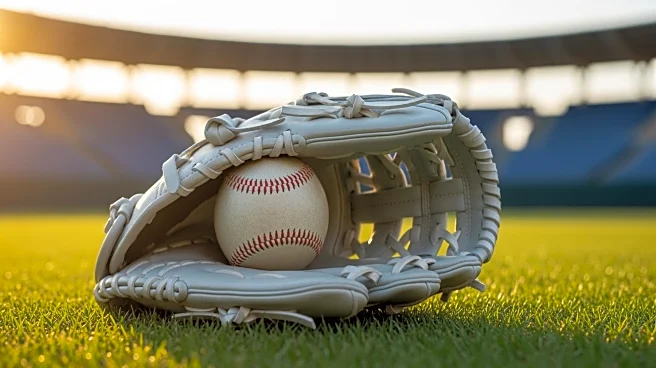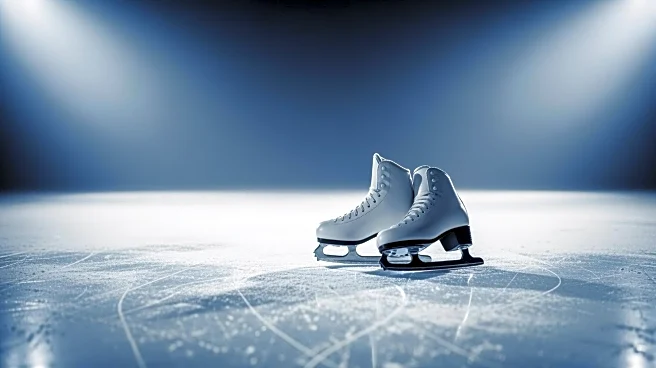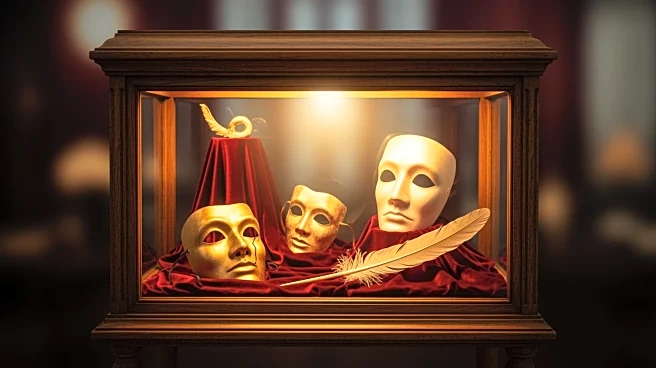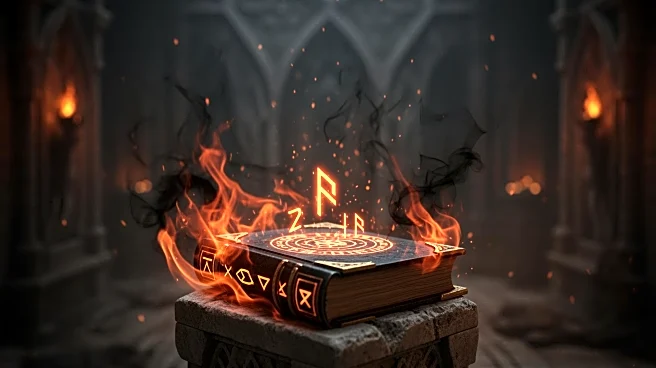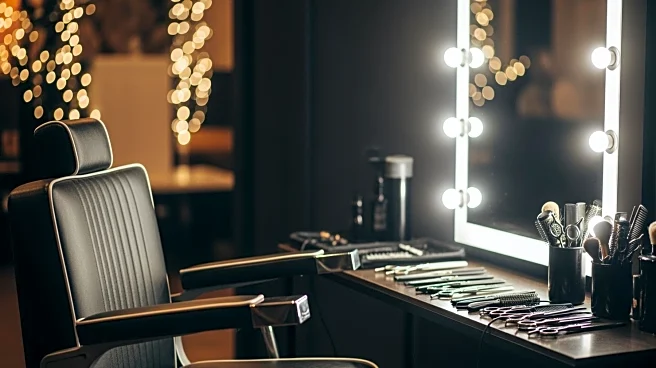Indiana men’s basketball head coach Darian DeVries addressed the media during a press conference ahead of the Hoosiers’ matchup against Kansas State on Tuesday night at Simon Skjodt Assembly Hall in Bloomington, Indiana.
Here’s what he had to say:
Q: You’ve done rebuilds the last two years at Drake and West Virginia. You had the preseason trips, obviously kind of the same thing at Indiana. When you get to the season, have you noticed any kind of common themes when you’ve had these — when you hit the actual
season, when you’ve had these kind of rebuilds?
DeVRIES: Yeah, the biggest thing is you’re learning a lot every time you step out on the floor. Whether it’s practice, games, whatever, they’re just a different situation where every individual on the team you don’t know how they’re going to react to because you haven’t coached them together before.
So those are things early in the year that you figure out a lot very quickly, and you can’t really simulate it until you start to play games. Every situation you get put in, it’s something new for the group. So there’s a lot of learning opportunities as we go along.
You have it all the way through the year and you continue to grow and get better, but it’s especially true with a brand new team because you don’t have the data to think how are they going to respond to a two-point game or this certain style of play or whatever it may be.
Q: What are some things that need to happen for Lamar to get back to the Lamar we saw the first three games versus the last couple?
DeVRIES: Keep shooting, that’s it. Just keep letting it rip. I’m not worried about that at all. He had a tough shooting night. You’re going to have those once in a while. But like I said after the game, he’s more likely to go 10 for 17 the next night than continue on that pace.
The percentages always work themselves out. That’s just what they are. Good shooters are good shooters. They don’t just learn how to — excuse me. They don’t just forget how to shoot. He’s going to keep letting them go. We’re going to keep telling him to let them go. We’re going to run all the stuff that we always run for him. At the end of the year, my guess is those numbers are going to look like they have always looked for him.
Q: On that, are there experiences that you’ve had that have helped you handle a really good shooter when he is slumping? Like when to push, when not to push at all?
DeVRIES: I think, again, it’s just giving your guys the utmost confidence in them and just encourage them to keep doing what they do. I actually would almost go the other way sometimes. It’s like you can’t pass that one up. I don’t care if you missed six in a row. You’re too good a shooter to almost — we can’t draw you a play to get you that open of a shot. So if that seventh one presents itself, shoot it again.
That’s the way you have to approach it. I think all guys that play the game, they’re shooters, you just know that’s how you have to be. I think that’s true in a lot of sports. You get them started — baseball, the greatest hitters in the world get out 70 percent of the time. You’re going to miss in basketball. That’s okay. Just keep staying confident, keep trusting your work.
Q: Thoughts on Kansas State? They have a prolific offense. I know they’ve got one guy whose name has escaped me is averaging 20 points a game. Your thoughts on that?
DARIAN DeVRIES: Yeah, wow. That’s what I say about the way they’re playing offense right now. They are getting out, and they’re getting out fast, and they’re in transition, and they put a lot of pressure on your defense to get organized and get put together in a hurry. They have a lot of guys that can shoot it.
I know going into the other night — I don’t know if it’s still true. I didn’t look at the updated stats — but they were the number one 3-point shooting team in the country, and they’re playing like it. They’re shooting with that type of confidence.
It will be a great test for us in not only transition but our half-court defense to do a good job there.
Q: What are the answers, I guess, with rebounding for you guys? Obviously I think it was 19 offensive boards you gave up the other night. Just to kind of figure out, improve in those areas, I guess, what do you think needs to happen? Is it crashing the boards harder? Is it putting guys in different spots? What needs to happen there?
DeVRIES: It’s a little bit of both. You go back and look at the tape. I’ll understand maybe the games that we’re playing, we’re going to play even bigger opponents, we all know that, but there’s still enough there that you credit to where can we get better? We are where we are from a size standpoint, but what are the things we can control? That’s hitting. That’s a little bit of an attitude, prioritizing rebounding and things.
Collectively as a group, we can get there and will get there. We’re just not there yet. There’s some habit things we’ve got to continue to get better at. There’s also a little bit of a mindset thing that we’ve got to continue to improve on. If we’re going to be a good defensive rebounding team, those are the things we have to be good at. If we’re going to be a good team, we have to be good at defensive rebounding. That’s going to be huge for us all year.
On a nightly basis, that’s going to determine in a lot of our outcomes is can we be physical, tough enough, and have the right mindset to go get those balls?
Q: You’ve talked a lot about how unselfish your team is, and that’s apparent when you watch them. Can a team be too unselfish, like could guys pass up shots they should be taking?
DeVRIES: At times, for sure. I thought the other night — and a little bit of it was what we talked about. I think a couple guys missed a few, and then that came back around to them again, and maybe they were a little hesitant to still let it rip. You can’t do that. It’s too hard to find those type of looks and those opportunities, especially for the guys that can really, really shoot it, that we’re trying to find ways to get them those type of shots.
Yeah, you can definitely get that at times. We have a few different areas where we need to be more aggressive, especially with paint touches. I think that’s something we’ve got to continue to prioritize a little bit more.
Q: You mentioned P.J. Haggerty a little bit, but his usage rate is like 34 percent. How different is game planning against a guy that creates so much of the offense for one team, and what’s the most important thing in stopping him?
DeVRIES: He’s been off to an incredible start, playing at a high, high level. He creates a lot for others too. It’s not just him scoring. He comes off, he finds those shooters. He does a really good job of getting fouled in the paint. He gets in there and gets to the free-throw line a lot, and then he’s got good size. So he’s got good body control, so he gets in there and can finish over you as well.
There’s a lot of reasons why he’s off to the start that he is. He’s a really good player, talented player. Again, like everything, it’s going to take a collective effort to do a good job on him, but also not focus so much attention on him that now you’re allowing those guys the catch and shoot set they’re looking for too.
Q: With Reed and with Sam, how do you balance their minutes? Is it a matchup thing? Is it a feel thing? How do you balance those on a game-to-game basis?
DeVRIES: Right now it’s just kind of going with the feel of the game and how the game is playing out. They both in different games have done really good things for us, and we’ve kind of played them accordingly to who’s having the more productive night, and the minutes have kind of reflected that each night of what do we need during certain situations?
They’re both doing a really good job. I like the impact and the different type of things they bring to us.
Q: On Nick Dorn, I guess, what have you seen from him, and how pleased are you with how he’s played over the three games in, and how difficult is it to balance getting him back in and getting minutes to him?
DeVRIES: He’s done a good job. He’s getting more and more comfortable. You’ve got to remember he’s been out for a long time. He’s only been back playing for a couple weeks after being out almost six months or whatever it was. It’s just going to continue to get him more comfortable with what we’re doing too. He’s never played in the system, both offensively and defensively.
Again, I like what I’m seeing from him in practice. I think he’s continuing to get better and better there. We’re looking forward to seeing where that could ultimately grow into.
Q: When you talk about the shots don’t fall, the energy goes down, you talk about that as kind of fighting human nature. What does that look like for you guys in practice, trying to keep the intensity up in that respect?
DeVRIES: I think the practices have been great. Even when you talk about it in the games, it’s just — it is, it’s like even from a fan standpoint, when you’re scoring, there’s just more energy that comes. It’s just what people like. Basketball players, they like to score.
I don’t think it’s really impacting maybe our defense that much. There’s been stretches. We’ve certainly had some tough stretches for three, four minutes in a couple of these games recently, but outside of that, I think our defense is still continuing to play at a pretty high level. Just got to avoid those two, three, four-minute lulls that hurt us a little bit.
Overall, I think our guys continue to stay pretty focused during those stretches. You just always got to fight it. I think that’s always just the main thing, just always making sure like here’s what’s got to be constant for us. The shooting’s going to go up and down throughout games, throughout the season, but making sure our defensive end, that’s always what keeps us right where we need to be, even during stretches where we’re not scoring at a prolific rate.
Q: Nick’s back obviously. Do you have any more of a clear timeline about when you’d possibly get Jason Drake and Aleksa Ristic back? I know Josh is a little behind them. Any sort of clear timeline for their return?
DeVRIES: Not really. They’re getting better. That’s the main thing. They’re all progressing, starting to do more things within practice, so that’s a good sign. We’ll be excited, again, to have those guys back and get them started working back into some minutes into the lineup and things.
Q: You’ve had Andrej now for, I think, three months. Where have you seen him grow, and what’s kind of the plan with him?
DeVRIES: Andrej is someone I think is getting better and better. He’s doing some good stuff in practice.
We’re still up in the air a little bit on what that’s going to look like for him throughout the rest of the season, but he’s doing a good job. He’s approached every day, and he’s learning what we’re doing at both ends of the ball. But he’s doing some good things for us out there.
